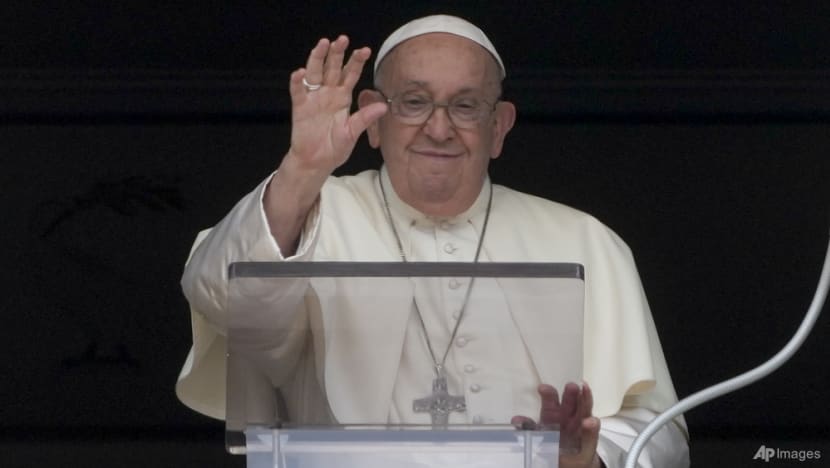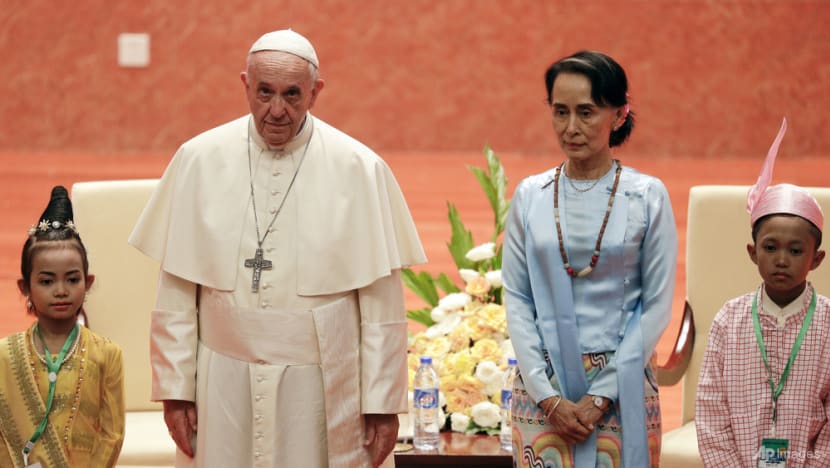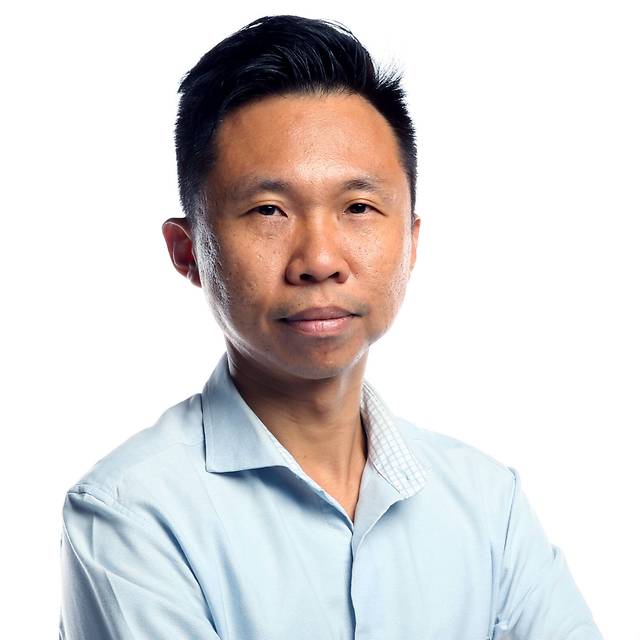Pope Francis to set off on historic 12-day visit to Asia Pacific, including Singapore and Indonesia
All eyes will be on how Pope Francis uses the trip and his role to push the needle on thorny issues, including ongoing wars and crises.

Pope Francis delivers his blessing as he recites the Angelus noon prayer from the window of his studio overlooking St.Peter's Square, at the Vatican, Sunday, Sept. 1, 2024. (AP Photo/Andrew Medichini)

This audio is generated by an AI tool.
VATICAN CITY: Pope Francis is set to embark on his longest trip since becoming head of the Catholic Church in 2013.
He will leave the Vatican City on Monday (Sep 2) to visit four countries in the Asia Pacific over 12 days.
The 87-year-old will visit Indonesia, Papua New Guinea, Timor-Leste and Singapore, with the entire trip involving about 43 hours of flight time and a distance of 32,000km.
It will also be his longest trip in terms of days spent away from the Vatican.
Bronchitis and joint pain have slowed Pope Francis down in recent years and caused him to postpone some trips and meetings. This upcoming tour – his first one since September last year – was originally planned for 2020 but was postponed due to the COVID-19 pandemic.
INTER-RELIGIOUS HARMONY
One key theme of the trip is inter-religious harmony. Pope Francis is set to engage not only with local Catholic groups, but also leaders of other faiths and political figures.
He is due to arrive in Jakarta on Tuesday afternoon, and will officially meet Indonesian President Joko Widodo at the Merdeka Palace on Wednesday.
On Thursday, the Pope is then expected to attend an interfaith meeting at Istiqlal Mosque in Jakarta before leading a mass at the Gelora Bung Karno Stadium complex, where around 80,000 Catholics are anticipated to attend.
Indonesia has the largest Muslim population of any country. Catholics make up 3.1 per cent of its total population of about 280 million.
Observers said the world will look at how much Pope Francis promotes diversity, as well as how much closer he brings the Vatican to Asia.
The tour also holds great significance, given that Asia is considered an important region to the Vatican. Pope Francis has made six previous trips to the continent throughout his papacy.
Dr Michel Chambon, research fellow at the Asia Research Institute’s religion and globalisation cluster, noted that Asia is becoming “more central” in global affairs.
“Asia is maybe one of the few continents that has been able to preserve and develop alternative political models and traditions, religious traditions and political traditions,” he told CNA.
“And so, if the Holy See wants to be truly universal, it has to engage with Asian traditions that have been extremely resilient and creative in engaging with modernity.”
Singapore’s former foreign affairs minister George Yeo, who was also previously a member of the Vatican Council for the Economy, pointed out that Pope Francis has appointed bishops from all over Asia, as well as cardinals from every country in Southeast Asia.
“He does it to express the idea of a universal church, that this is not a European church. It's not a Western church,” Mr Yeo added.

NAVIGATING THORNY GLOBAL ISSUES
The trip also comes amid ongoing wars and crises.
Pope Francis has been outspoken about issues such as migration, climate change and poverty. He has also spoken up against violence in Ukraine, Gaza, and Myanmar.
All eyes will be on how he uses this trip and his role to push the needle on these thorny issues, observers said.
Mr Yeo pointed out: “The pope has no domestic constituency. He only has a universal constituency, and therefore he's able to say things which many of us feel inside, but (which) political leaders cannot always articulate.
“So, he's in a very unusual position, being able to speak on behalf of everyone."
Despite that, Pope Francis' trip may not be free of issues that hit close to home.
Timor-Leste, for example, has seen numerous allegations of Catholic priests' involvement in child sexual abuse.
The Vatican would also need to tread carefully on other sensitive topics like abortion, the death penalty and same-sex marriages.
As the world’s smallest state, the Vatican City has diplomatic relations with almost all nations save for a few – including China, North Korea and Afghanistan.
"When it comes to political leadership, it may be more complex,” said Dr Chambon.
“You cannot put everything on the table, but for the church itself to find the balance between religion and politics, I think that one big effort is to be engaging and transparent.”
















